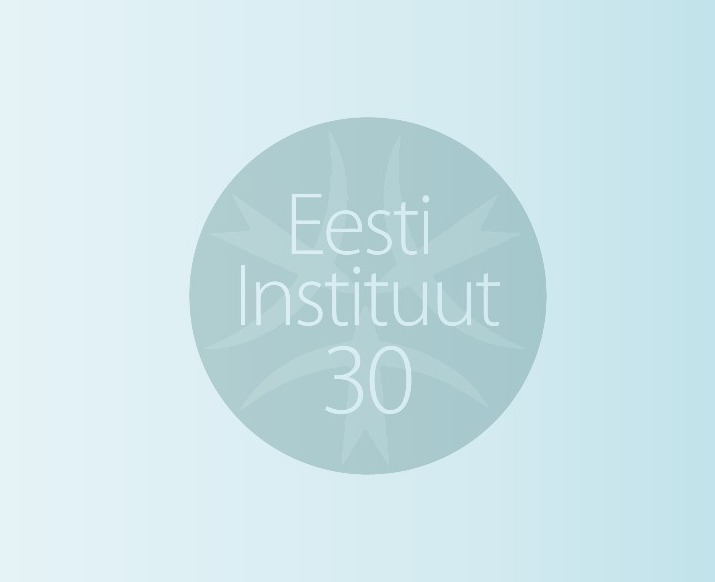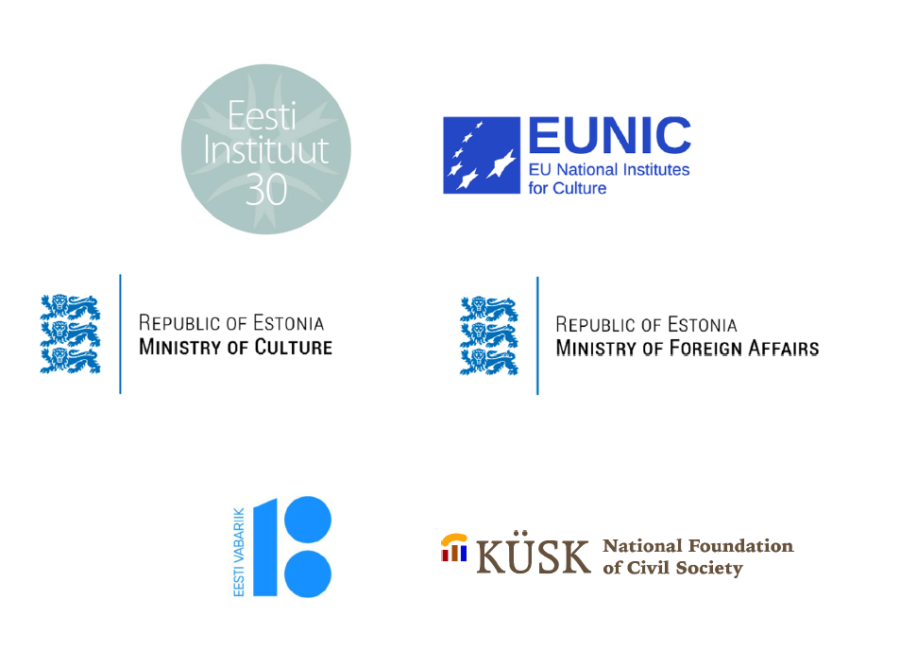
An international cultural seminar “EVERY BEGINNING IS EASY!”
10.10.2019 – 11.10.2019
On October 10th and 11th, the Estonian Institute is organizing an international cultural seminar to celebrate its 30th anniversary. The aim of the seminar is to bring together Nordic and Baltic cultural institutes as well as members of the European Union National Institutes for Culture’s (EUNIC) Tallinn cluster to jointly discuss different aspects of cultural exchange and to gather ideas for linking different fields of culture. The topics of the seminar include an overview of the European cultural strategy, as well as participation in international projects, and how to enhance cultural cooperation.
International cultural seminar
“EVERY BEGINNING IS EASY!”
PROGRAMME
Thursday, October 10th at the Tallinn Teachers’ House, Raekoja plats 14.
The first part of the seminar (10:00-12:00) will be held in Estonian and the second part (13:00-17:00) in English.
Moderator of the seminar is Eero Raun.
9:30 Welcome and registration
9:45 Welcome song Veronika Kivisilla
10:00 Estonian Institute 30!
Katrin Maiste (Director of the Estonian Institute)
10:15 Cultural diplomacy, exchange and export
Juko-Mart Kõlar (Foreign Relations Department of the Estonian Ministry of Culture)
10:30 Panel discussion: “How to bind different fields?”
Merit Kopli (Cultural Attaché in Berlin)
Sanna Immanen (Head of the Estonian Institute in Finland)
Kairi Künka (Consulate General of Estonia in New York)
11:15 Round table discussions:
Culture and food. Culture and education. Culture and business. Cultural festivals.
12:00 Lunch
13:00 Greetings from the Minister of Culture of the Republic of Estonia
Tõnis Lukas
13:10 European culture on a global scale. EU strategic approaches to international cultural relations.
Lina Kirjazovaite and Robert Kieft (EUNIC Global)
13:45 Panel discussion: “How can smaller countries play an active role in wider-scale international projects?”Tove Ekman (Director of Finnish Cultural and Academic Institutes)
Mikaela Fredriksén Tollin (Deputy Director General, Director of Department for strategic leadership and management at the Swedish Institute)
Camilla Mordhorst (Secretary General of Danish Cultural Institute)
Aušrinė Žilinskienė (Director of Lithuanian Culture Institute)
Katrin Maiste (Director of the Estonian Institute)
Latvian Institute
14:15 Panel discussion: “How open is Estonia to other European cultures? The challenges of our partners and neighbors.”
H.E. Grzegorz Kozłowski (Ambassador of the Republic of Poland to the Republic of Estonia)
Anu Heinonen (Head of the Finnish Institute in Estonia)
Tamás Orosz (Director of the Hungarian Institute, Tallinn)
15:15 Coffee break
15:40 Introduction to workshops, success stories
15:45 Workshops:
Music is connecting people. Estonia in films. Literature – what stories should we tell in order to become published? Designing a cultural event. EUNIC
16:30 Conclusions
18:00 Reception in the Tallinn Teachers’ House, musical greetings from Puuluup.
Friday, October 11th at the Viinistu Art Museum
8:30 Departure to Viinistu (Bus will depature from G. Otsa street)
10:15 Coffee break at Viinistu
10:30 How does nature influence culture and vice versa?
Timo Maran
Timo Maran is an Estonian semiotician and poet. Maran holds a position of Senior Research Fellow at the Department of Semiotics, University of Tartu, Estonia. From 2018 he is also head of the Semiotics Department. Maran’s main research interests are ecological semiotics, Estonian nature writing, zoosemiotics and species conservation and semiotics of biological mimicry.
11:10 Paradoxical Estonia
Ahto Lobjakas
Ahto Lobjakas is an occasional radio presenter and newspaper columnist. In 2000-2010 he worked as Brussels correspondent for Radio Free Europe, Radio Liberty.
12:00 Networks in Europe – why are we doing things together?
Lina Kirjazovaite and Robert Kieft (EUNIC Global)
13:00 Lunch
14:00 Tour in Viinistu
15:00 Departure to Tallinn
Moderator of the seminar is Eero Raun.
The programme of the international seminar.
The cultural seminar is supported by the Estonian Ministry of Culture, the Estonian Ministry of Foreign Affairs, the National Foundation of Civil Society (NFCS), EV 100, and EUNIC.

